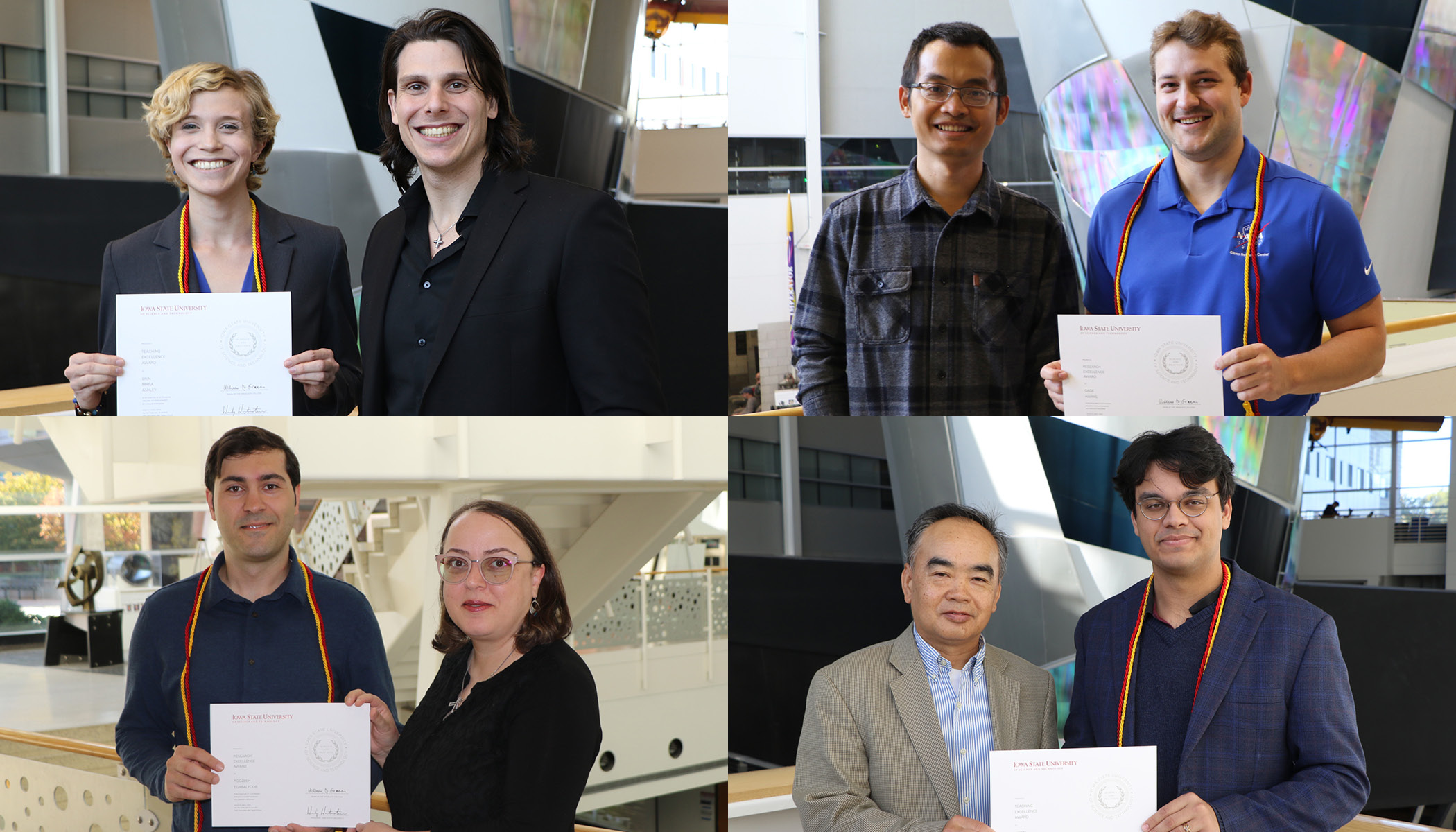Teaching Excellence (TEX) and Research Excellence (REX) Awards for summer 2024 have been presented to four Department of Aerospace Engineering graduate students. The awards, from Iowa State University’s Graduate College, recognize graduate students who excel in scientific research or teaching performance and are determined from faculty mentor nominations.
Erin Ashley and Kiran Digavalli are recipients of the TEX Award. Ashley was nominated by assistant professor Simone Servadio and Digavalli was nominated by Anson Marston Distinguished Professor in Engineering and Martin C. Jischke Professor in Aerospace Engineering Hui Hu.
Gage Harris, nominated by assistant professor and Mike and Denis Mack 2050 Scholar Ping He; and Roozbah Eghbalpur, nominated by assistant professor Azadeh Sheidaei, have received REX awards.
In nominating Ashley, professor Servadio said he witnessed first-hand the profound impact she has had on students, especially in helping undergraduate research assistants develop the “researcher mindset.” Servadio reported she was a teaching assistant for two consecutive semesters and achieved great feedback from the student evaluations at the end of the courses. He said this prompted him to have her oversee an undergraduate student during the summer 2024 semester. He added that Erin demonstrates great passion and commitment to teaching and developing students, provides constant feedback and provides inspiration to students both academically and personally.
Hu praised Digavalli for his performance in the AER E 3440 laboratory, where he reported he
demonstrated a great degree of maturity and professionalism and put forth extra effort. He particularly singled out his ability to communicate well with students of all levels, and to recognize the different needs of individual students — especially those who needed extra explanation or guidance on how to use lab equipment. He added that when a new teaching assistant who had never taught the course’s labs was assigned to the course several days before the start of the semester, Kiran volunteered to work with him to help him understand processes and procedures.
Professor He said he has been impressed by Harris’ strong research background and excellent research productivity. Harris has published a paper in the Journal of Spacecraft and Rockets and has presented three conference papers at American Institute of Aeronautics and Astronautics and American Astronomical Society events. Harris is also collaborating with researchers from NASA and as of this writing is about to submit a journal paper to Aerospace Science and Technology. Professor He also cited that Harris is highly motivated and needs only minimal instruction to conduct a project independently – such as building a spacecraft mission optimization toolbox from scratch, leveraging multiple simulation and optimization tools. Harris also recently passed the preliminary examination for a Ph.D. in aerospace engineering.
Eghbalpoor was noted by Sheidaei as having a strong understanding of the solid mechanics field and excellence in computational science, as evidenced by several publications, where he was the first author in most cases. She added that he is a very motivated and independent Ph.D. student, eager to learn beyond his assigned tasks; and at the same time collaborates with other students in the lab and significantly contributes to other projects. Two undergraduate research students in Sheidaei’s lab have also been working directly under supervision of Eghbalpoor. She stated he has completed all the course requirements for his Ph.D. with a perfect GPA of 4.0.

